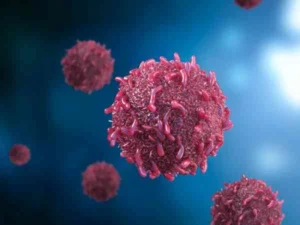How to Slow a Fast Metabolism?
Metabolism is how our bodies turn food into energy. Some people naturally have a fast metabolism, which might sound great if you want to lose weight, but for others, it can be a challenge. A fast metabolism means that your body burns calories quickly, making it hard to gain weight or maintain energy. If you are someone who struggles with this and is wondering how to slow a fast metabolism, then you are in the right place.
In this guide, we will explore why someone might want to slow down their metabolism, what factors affect metabolism, and most importantly, give you practical steps on how to slow a fast metabolism. We will explain everything in simple terms so that you can understand and apply these tips in your daily life.

What is Metabolism?
Metabolism is the process through which your body converts the food and drink you consume into energy. Even when you are resting, your body needs energy for basic functions like breathing, circulating blood, and repairing cells. The speed at which your body performs these tasks is called your metabolic rate.
Some people naturally have a fast metabolism, which means they burn more calories even when they are doing nothing. Others may have a slower metabolism and burn fewer calories. If you are searching for how to slow a fast metabolism, it’s likely because you want to stop losing weight or maintain your current weight.
Factors That Affect Metabolism

Before diving into how to slow a fast metabolism, let’s look at what causes your metabolism to speed up or slow down. Knowing these factors will help you understand which steps will work best for you.
- Genetics: Your genes play a huge role in determining your metabolic rate. If your family has a history of fast metabolism, you might inherit it too.
- Age: As you grow older, your metabolism naturally slows down. That’s why many people find it easier to gain weight as they age.
- Muscle Mass: Muscle burns more calories than fat. If you have a lot of muscle, your metabolism will be faster. This is why bodybuilders and athletes often have a high metabolism.
- Physical Activity: The more active you are, the faster your metabolism. Exercise burns calories and boosts your metabolic rate.
Understanding these factors will make it easier to apply the tips for how to slow a fast metabolism in the following sections.
Why Would You Want to Slow Down Your Metabolism?

While a fast metabolism might seem like a blessing for people who struggle to lose weight, it can actually be a problem for others. Here are some reasons why you might want to learn how to slow a fast metabolism:
- Weight Gain: If you have a fast metabolism, you may find it hard to gain weight even if you eat a lot. Slowing your metabolism can help you maintain or increase your weight.
- Energy Fluctuations: A fast metabolism can lead to constant hunger and energy highs and lows. Slowing it down can help regulate your energy levels.
- Prevent Nutrient Deficiency: When your metabolism is fast, your body may not absorb all the nutrients from the food you eat. This could lead to deficiencies in important vitamins and minerals.
- Health Reasons: Some people need to slow down their metabolism for medical reasons, such as recovering from an illness or surgery.
If any of these reasons apply to you, then learning how to slow a fast metabolism can help improve your overall well-being.
How to Slow a Fast Metabolism?

Now that you understand why slowing your metabolism might be beneficial, let’s look at practical tips on how to slow a fast metabolism.
1. Eat More Calories
One of the simplest ways to slow down your metabolism is to eat more calories than your body needs. When you eat more, your body doesn’t need to work as hard to burn the extra food, which slows down your metabolism.
- Focus on High-Calorie Foods: Foods like nuts, seeds, avocados, and whole grains are high in calories and can help you gain weight.
- Eat Frequently: Instead of having three large meals a day, try eating five or six smaller meals. This will keep your body busy digesting food and may slow down your metabolism.
2. Reduce Exercise
Exercise, especially high-intensity workouts, speeds up your metabolism. If you want to slow it down, consider reducing the amount of exercise you do.
- Switch to Light Activities: Walking, yoga, or swimming at a slow pace can still keep you healthy without increasing your metabolism too much.
- Avoid Intense Cardio: Exercises like running or cycling fast can make your metabolism even faster. Stick to moderate physical activities.
3. Sleep More
Getting enough sleep can help regulate your metabolism. When you are sleep-deprived, your body may speed up your metabolism to keep you awake and alert. Aim to get 7-9 hours of sleep each night to help slow down your metabolism.
- Create a Bedtime Routine: Going to bed at the same time every night can help you get better quality sleep.
- Avoid Caffeine in the Evening: Stimulants like caffeine can keep you awake and mess with your body’s natural sleep patterns.
4. Limit Protein Intake
Proteins require more energy for your body to break down than carbohydrates or fats. By reducing your protein intake and focusing on carbs and fats, you can slow your metabolism.
- Focus on Carbs and Fats: Carbohydrates like pasta, bread, and rice are easier for your body to break down and use for energy.
- Reduce Protein: Instead of eating large amounts of meat or other protein-rich foods, opt for a balanced diet with moderate protein levels.
5. Avoid Metabolism-Boosting Foods
Certain foods, like spicy peppers and green tea, are known for boosting metabolism. If you are trying to slow your metabolism, it’s a good idea to avoid these types of foods.
- Skip Spicy Foods: Ingredients like chili peppers contain capsaicin, which can raise your metabolism. Avoid spicy dishes if you want to slow it down.
- Cut Down on Caffeine: Coffee and green tea are popular drinks that increase metabolic rate. If you drink a lot of these, consider cutting back.
6. Focus on Strength Training
While cardio exercises like running or cycling can speed up your metabolism, strength training can help you build muscle without significantly boosting your metabolic rate. Focus on lifting weights with fewer repetitions and heavier loads to slow down your metabolism.
- Take Rest Breaks: Resting between sets can also prevent your metabolism from speeding up.
- Low-Intensity Workouts: Avoid high-intensity interval training (HIIT) as it can increase your metabolic rate.
Best Foods to Slow Down Metabolism

If you are looking for foods that can help with how to slow a fast metabolism, here are some options to consider:
- Full-Fat Dairy: Foods like whole milk, full-fat yogurt, and cheese are high in calories and can help you gain weight without speeding up your metabolism.
- Carbohydrates: Starchy foods like bread, pasta, rice, and potatoes take longer to digest, which can help slow your metabolism.
- Healthy Fats: Incorporating healthy fats like olive oil, nuts, and avocados into your diet can increase your calorie intake without raising your metabolism too much.
- Sugary Foods: While you shouldn’t overdo it, a little sugar can slow down your metabolism as your body takes time to process it.
The Role of Hydration
Drinking enough water is important for your overall health, but drinking too much water, especially cold water, can increase your metabolism. If you want to know how to slow a fast metabolism, drink water moderately and avoid ice-cold water.
- Drink at Room Temperature: Cold water requires your body to burn calories to warm it up, which can speed up your metabolism.
- Stay Hydrated, But Not Excessively: Drink when you are thirsty, but don’t force yourself to drink more than you need.
Summing up,
Slowing down a fast metabolism isn’t something that happens overnight, but with the right changes, you can make it happen. By eating more calories, exercising less intensely, getting enough sleep, and choosing the right kinds of foods, you can gradually slow your metabolism. This can help if you’re trying to gain weight, manage your energy levels, or avoid nutrient deficiencies.
The tips in this guide on how to slow a fast metabolism are simple and easy to follow. Just remember to be patient and consistent with the changes. And it’s always a good idea to talk to a doctor before making any big changes to your diet or exercise routine to make sure it’s safe for you. Every person is different, so finding what works best for your body is important.





